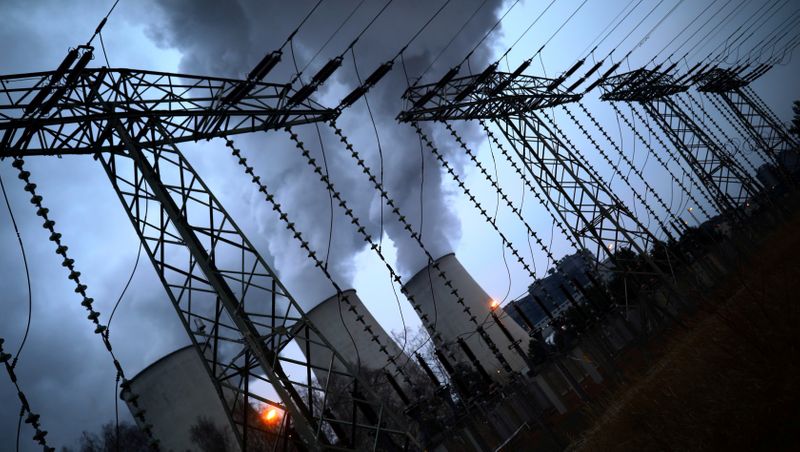BERLIN/FRANKFURT (Reuters) - Chancellor Angela Merkel's cabinet on Wednesday approved a 4.3 billion euro ($4.9 billion) compensation package for utilities operating lignite power stations as part of Germany's plans to phase out coal by 2038 at the latest to meet climate goals.
"Even in the (coronavirus) pandemic we are insisting on strong climate protection," Finance Minister Olaf Scholz said. "Today we took a major step on the path to this goal." The size of the package was agreed between Merkel's government and the utilities affected by the phase-out, which include RWE (DE:RWEG), Uniper (DE:UN01), EnBW (DE:EBKG), Vattenfall (VATN.UL), Steag and LEAG.
Winding down power generation from lignite, or brown coal, is expected to cost many more billions of euros, including 40 billion euros in investments in mining regions.
The lower house of parliament, where Merkel's conservatives and their Social Democrat (SPD) coalition partner have a majority, has still to approve the package, which it will vote on in early July.
It must then pass the upper house representing the states, and is also subject to approval by the EU Commission for compliance with state aid rules.
The coalition partners still need to agree on the final details of a separate compensation package for utilities with plants powered by imported hard coal.
These were meant to be harder hit but have successfully argued to extend a planned auction scheme and increase compensation payouts. They also want aid to switch mainly younger plants to gas use.
The government this month approved plans to cut greenhouse gas emissions by 55% by 2030, plus measures to deliver on this target. In addition to the coal phase-out, these include carbon pricing for transport and buildings next year.

($1 = 0.8866 euros)